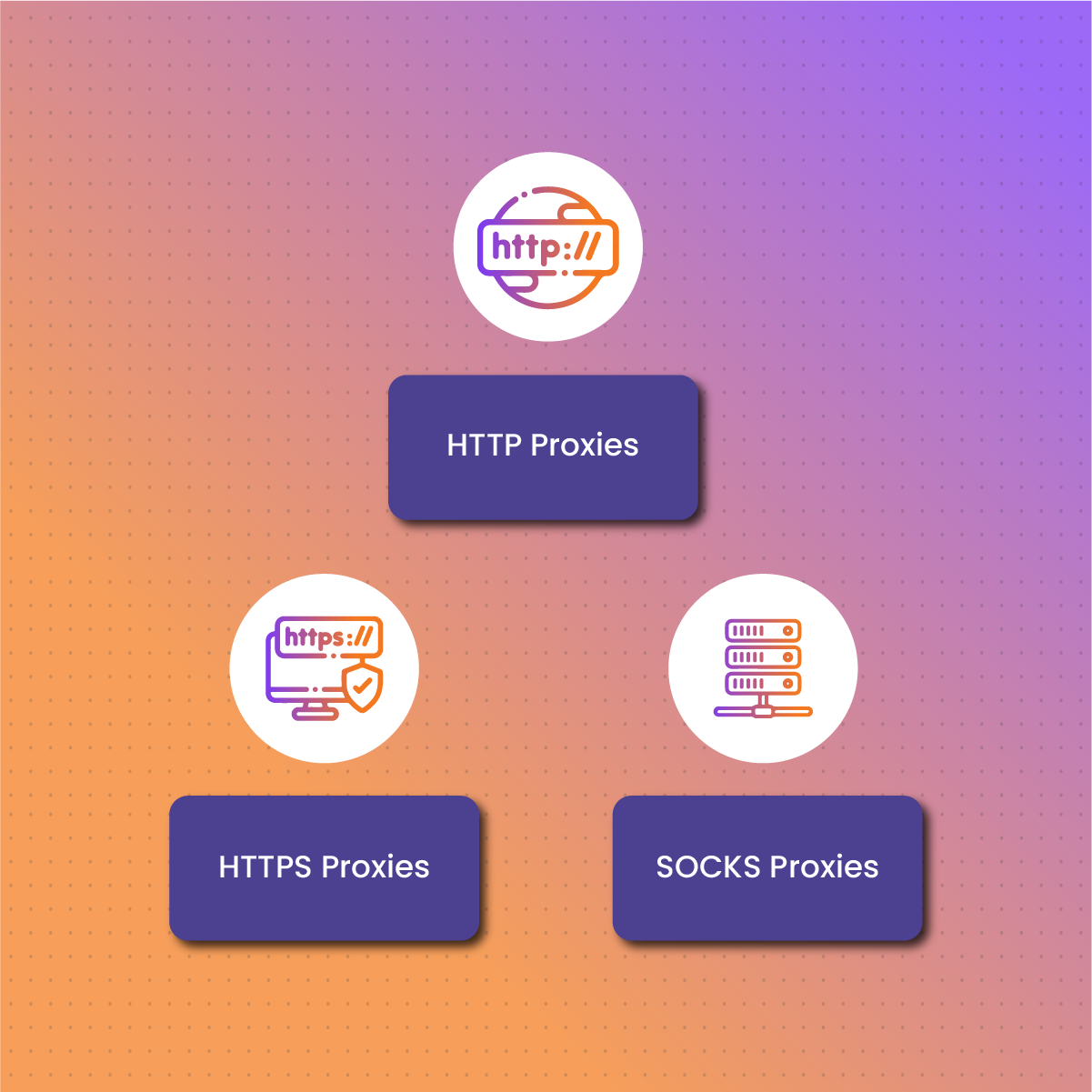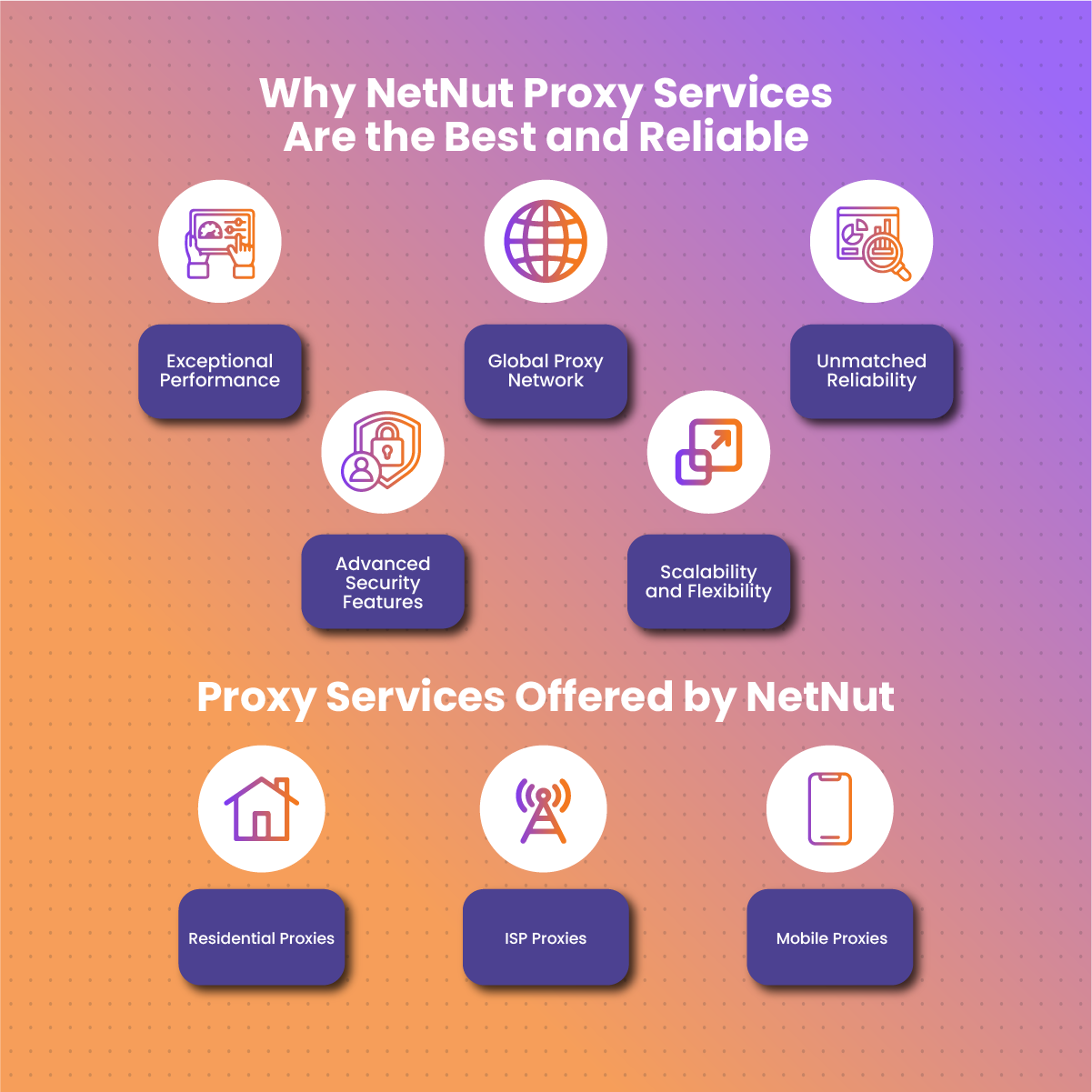Introduction
In today’s digital world, where we’re constantly surfing the web, streaming videos, or scraping data for projects, proxies have become our trusted tool. They are especially significant in helping us navigate through cyberspace safely and anonymously. But just like any good tool, proxies need to be put to the test to ensure they’re up for the job.
Testing proxies ensures they’re reliable, fast, and secure. In this article, we’ll take you through everything you need to know about testing proxies like a pro.
In addition, we’ll break down the process into simple steps, so you don’t need to be a tech expert to follow along. From understanding the different types of proxies to conducting various tests to evaluate their performance, we’ve got you covered.
So buckle up, because by the end of this article, you’ll be equipped with the knowledge to choose and test proxies with confidence.
Let’s dive in!
What are Proxies?
In simple terms, a proxy is like a middleman between your device (like your computer or smartphone) and the internet. Instead of connecting directly to a website, your device first connects to the proxy server, which then forwards your requests to the website on your behalf. This means that the website sees the proxy server’s IP address instead of your own, providing an extra layer of privacy and cyber security.
Types of Proxies (HTTP, HTTPS, SOCKS)
Proxies come in different ways, each with its own set of features and use cases. Here are the main types you’ll come across:
HTTP Proxies
These are the most common types of proxies and are primarily used for web browsing. The HTTP proxies can handle HTTP traffic, which means they’re great for accessing websites and retrieving web content.
HTTPS Proxies
Similar to HTTP proxies, but with an added layer of security. HTTPS proxies encrypt the data sent between your device and the proxy server, making them ideal for sensitive tasks like online banking or shopping.
SOCKS Proxies
SOCKS proxies operate at a lower level than HTTP/HTTPS proxies and can handle any type of internet traffic, not just web browsing. This makes them versatile and suitable for a wide range of applications, including online gaming and peer-to-peer file sharing.
Why Test Proxies?
Let’s say, you’ve got your proxies lined up and ready to go – but hold on a minute! Before you send them off on their internet adventures, there’s an important step you shouldn’t skip: testing. Testing proxies ensures they’re up to the task such that anonymity, security, and privacy won’t be compromised. Why exactly do we need to test proxies? Let’s break it down.
Ensuring Reliability
First, testing proxies helps ensure they’re reliable. By putting proxies to the test, you can check for any potential issues like downtime, connection failures, or slow performance. This way, you can weed out the unreliable ones and choose proxies that you can count on when it matters most.
Evaluating Speed
Speed matters, especially in today’s digital world. Whether you’re streaming videos, downloading files, or conducting real-time data analytics, every second counts. Testing proxies allows you to evaluate their speed and performance, helping you identify the fastest ones for your needs. After all, nobody likes waiting ages for a web page to load or a file to download – with fast proxies, you can scroll through your online tasks with ease.
Checking Security
On a final note, testing proxies is essential for checking their security. When you route your internet traffic through a proxy server, you’re essentially trusting it to keep your data safe and secure. By conducting security tests, you can ensure that proxies are equipped with the necessary encryption and authentication mechanisms to protect your sensitive information from prying eyes and cyber threats. After all, the last thing you want is for your confidential data to fall into the wrong hands.
In a nutshell, testing proxies is ensuring they’re reliable, fast, and secure, so you can rest assured that your online activities will go off without a hitch. Therefore, don’t skip the testing phase –it will influence the efficiency of your activities.
Preparing to Test Proxies
Before you dive into testing, it’s important to lay down some groundwork. You need clear objectives, the right tools, and a solid plan of action. Let’s break down the key steps to prepare for testing proxies.
Setting Clear Testing Objectives
First things first, you need to define your testing objectives. What exactly do you want to achieve by testing proxies? Are you primarily concerned about speed, reliability, security, or all of the above? By setting clear objectives, you’ll have a roadmap to guide your testing process and ensure that you’re focusing on what matters most to you.
For example, if you’re planning to use proxies for web scraping, your main objectives might include ensuring reliable and high-speed connections, as well as verifying that the proxies can handle large volumes of data without crashing.
Identifying Suitable Testing Tools and Methods
Once you’ve established your testing objectives, it’s time to identify the right tools and methods for the job. Fortunately, there’s no shortage of testing tools and techniques available. This includes simple ping tests to more advanced security assessments.
Choose the tools and methods that align with your testing objectives and provide the most relevant insights into the performance and security of your proxies.
Selecting Proxy Providers for Testing
Finally, you’ll need to select proxy providers to test. With a number of proxy providers available, it’s essential to choose ones that meet your specific needs in terms of reliability, speed, security, and pricing.
Consider factors such as:
- Reputation and reliability of the proxy provider
- Range of proxy types and locations offered
- Level of customer support provided
- Pricing plans and flexibility
It’s often a good idea to test proxies from multiple providers to compare their performance and features before making a final decision.
In summary, by setting clear objectives, identifying suitable testing tools and methods, and selecting proxy providers for testing, you’ll be well-prepared to embark on your proxy testing journey with confidence.
Testing Proxies: Step-by-Step Guide
In this section, we’ll walk you through various tests to evaluate the performance and security of your proxies. From basic ping tests to more advanced security assessments, we’ve got you covered. Let’s get started!
Ping Test
A ping test measures the response time between your device and the proxy server. It’s like calling out to the server and seeing how quickly it responds – the lower the ping, the faster the connection.
To conduct a ping test, open the command prompt on your computer and type “ping [proxy IP address]” (without quotes). Press Enter, and you’ll see the response time in milliseconds. A low ping (usually under 100ms) indicates a fast and responsive connection, while a high ping may suggest network congestion or server issues.
Speed Test
Speed testing measures the download and upload speeds of your proxy connection, giving you an idea of how quickly data can be transferred. The popular speed testing tools like Ookla’s Speedtest.net or Fast.com can provide accurate measurements of your proxy’s speed.
Also, look for consistent and satisfactory download and upload speeds, ensuring that they meet your requirements for your intended use of the proxy.
Connection Stability Test
Stability is key for uninterrupted browsing or data retrieval. A stable connection ensures a smooth and reliable experience. This begs the need for you to monitor your proxy connection over an extended period using tools like PingPlotter or by simply observing the connection’s performance during regular usage. You can look for minimal fluctuations or drops in connection quality over time, ensuring that your proxy maintains stable performance.
Geolocation Test
Geolocation testing verifies the physical location of the proxy server, ensuring it aligns with your intended use case, such as accessing region-specific content. Websites like WhatIsMyIPAddress.com or IP2Location offer geolocation services that can help you determine the location of your proxy server. At the end, confirm that the proxy server is located in the desired region to access geo-restricted content or comply with regulatory requirements.
IP Leak Test
An IP leak occurs when your real IP address is exposed despite using a proxy, compromising your anonymity. IP leak tests check for vulnerabilities in your proxy setup. To conduct IP leak test, use online IP leak testing tools or websites like IPLeak.net to check for any leaks in your proxy configuration.
Protocol Compatibility Test
Protocol compatibility testing verifies that the proxy supports the protocols required for your specific use case, whether it’s HTTP, HTTPS, or SOCKS. To test for protocol compatibility, attempt to connect to various services or websites using different protocols to ensure compatibility with your intended applications. After the test, confirm that the proxy easily integrates with the applications or services you plan to use it with, avoiding any protocol-related issues.
Customer Support Test
A good customer support is essential for resolving any issues or queries you may encounter while using the proxy service. The customer support test is done by reaching out to the proxy provider’s customer support team with questions or concerns and assessing their responsiveness. You can reach out whether through email, live chat, or phone, to make contact with the customer support team. This allows you to gauge their level of support and assistance.
Trial Period Test
You can take advantage of free trial periods offered by proxy providers to test their services before committing to a subscription. Trial periods allow you to evaluate performance, features, and support without financial commitment. During the trial period, thoroughly test the proxy’s performance, security, and compatibility with your applications to ensure it meets your requirements.
In addition, pay close attention to factors like speed, reliability, security, and customer support responsiveness during the trial period to make an informed decision about subscribing to the service.
Use of NetNut Proxies
When it comes to proxy service providers, reliability is key. And if you’re on the lookout for the best of the best, look no further than NetNut. NetNut is renowned for its exceptional performance, security, and versatility. NetNut proxies have earned a reputation as the go-to choice for users with demanding proxy needs. But what sets NetNut proxies apart from the competition?
Let’s dive into why NetNut proxies are considered the best and most reliable in the business.
Why NetNut Proxy Services Are the Best and Reliable
Exceptional Performance
NetNut proxies are built on a high-performance infrastructure that ensures lightning-fast speeds and uninterrupted connectivity. Whether you’re browsing the web, streaming videos, or running data-intensive tasks like web scraping or ad verification, NetNut proxies deliver consistently high performance without skipping a beat.
Global Proxy Network
With NetNut proxies, you gain access to a vast global network of proxy servers strategically located in key regions around the world. This extensive network ensures reliable access to geo-restricted content, allowing you to bypass IP restrictions and access content from any location with ease.
Unmatched Reliability
When it comes to reliability, NetNut proxies set the gold standard. Backed by robust infrastructure, NetNut proxies boast an impressive 99.99% uptime guarantee, minimizing downtime and ensuring uninterrupted access to the internet at all times.
Advanced Security Features
Security is a top priority at NetNut, and their proxies are equipped with advanced security features to safeguard your data and privacy. From encryption protocols to IP whitelisting, NetNut proxies provide a secure and anonymous browsing experience, protecting your sensitive information from prying eyes and cyber threats.
Scalability and Flexibility
Whether you’re a small business or a large enterprise, NetNut proxies are designed to scale with your needs. With flexible pricing plans and customizable solutions, NetNut caters to users of all sizes, providing tailored proxy solutions that meet your specific requirements and budget.
Proxy Services Offered by NetNut
NetNut offers a range of proxy solutions to suit various use cases and applications. This includes:
Residential Proxies
NetNut rotating and static residential proxies are sourced from a vast network of real residential IP addresses, providing unparalleled anonymity and reliability for web scraping, ad verification, and other data-intensive tasks.
ISP Proxies
For users who require high-speed, low-latency connections, NetNut ISP proxies offer lightning-fast performance and reliability for tasks like web browsing, gaming, and streaming.
Mobile Proxies
NetNut mobile proxies emulate real mobile devices, making them ideal for mobile app testing, mobile advertising, and other mobile-specific applications.
In summary, NetNut is an industry-leading provider when it comes to reliability, performance, and security. Choose NetNut proxies and experience the difference for yourself.
Conclusion
Testing proxies is not just a routine task but a crucial step in ensuring a smooth and secure online experience. By learning how to test proxies, you can easily navigate the complexities of the internet with confidence.
From conducting basic ping and speed tests to more advanced assessments of connection stability, geolocation, and security features, there’s a wide array of tools and methods available to thoroughly test proxies. Moreover, by testing proxies regularly and staying vigilant for any signs of trouble, users can ensure optimal performance and safeguard their data and privacy from cyber threats.
So, whether you’re a seasoned proxy user or just starting out, don’t underestimate the power of testing. By following the steps outlined in this guide and applying the recommended testing methods, you’ll be well-equipped to unlock the full potential of proxies and new possibilities in your online journey.
Frequently Asked Questions and Answers
What security features should I look for in a proxy?
Look for proxies that offer encryption, authentication mechanisms, and anonymity to safeguard your data and privacy from cyber threats.
What should I do if I encounter issues during testing?
If you encounter issues during testing, troubleshoot the problem by checking your proxy configuration, testing with different proxies or testing methods, and reaching out to the proxy provider’s customer support for assistance.
How often should proxies be tested for optimal performance?
It’s recommended to test proxies regularly, especially before starting critical tasks or if you notice any performance issues. Testing proxies periodically helps ensure optimal performance and security.









